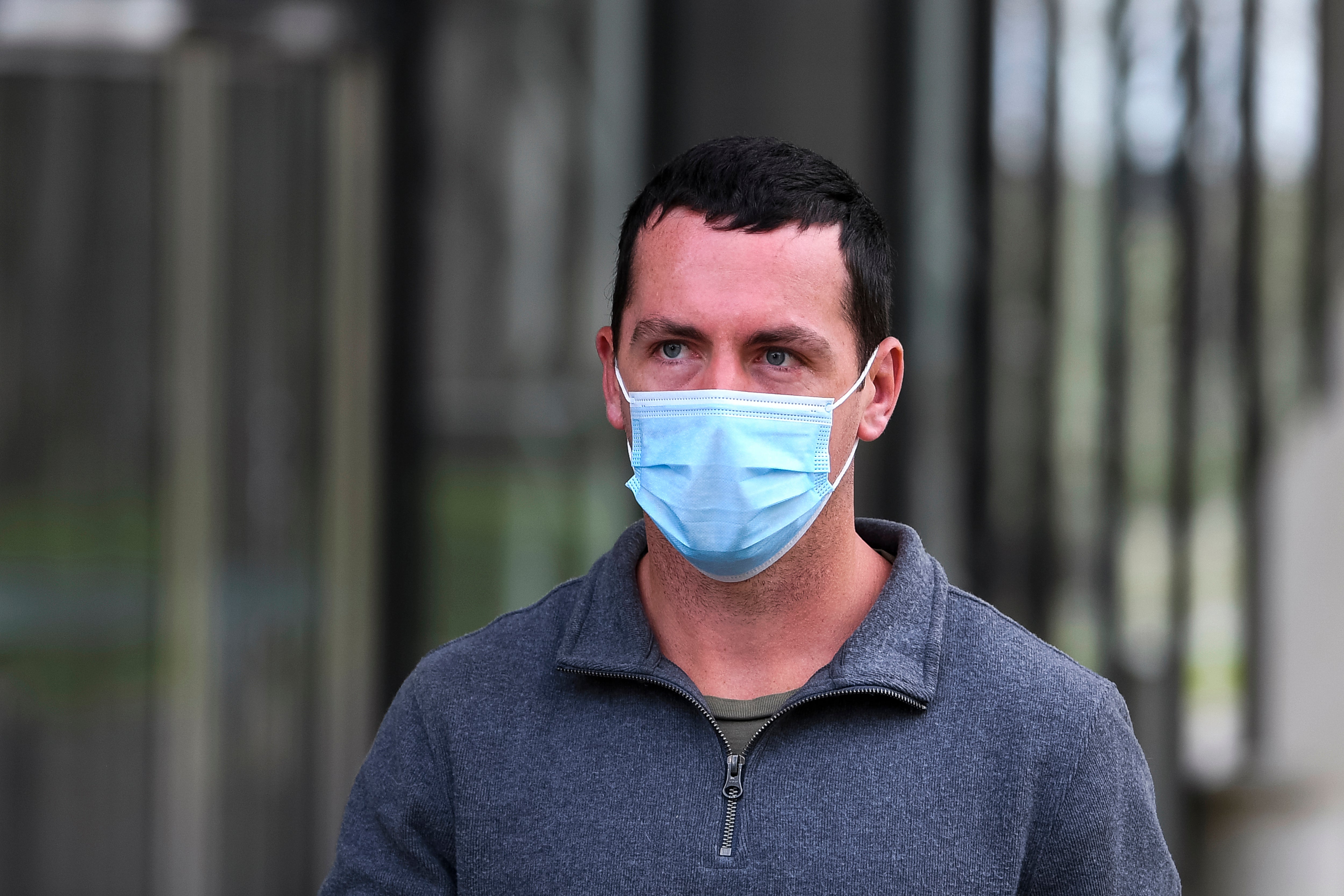Australia's High Court intervenes in police shooting trial
Australia’s highest court has agreed to hear a challenge to a police officer using his law enforcement job as a defense against a charge of murdering an Indigenous man

Australia’s highest court on Friday agreed to hear a challenge to a police officer using his law enforcement job as a defense against a charge of murdering an Indigenous man.
Constable Zachary Rolfe could become the first police officer to be convicted in Australia of unlawfully killing an Indigenous person.
Rolfe shot Kumanjayi Walker three times in a bedroom of his family home in the central Australian Indigenous township of Yuendumu during an attempted arrest on Nov. 9, 2019.
Walker had stabbed Rolfe with a pair of scissors during a struggle. The murder charge relates to the second and third shots that killed the 19-year-old and that prosecutors allege were unnecessary.
Three High Court judges on Friday agreed to hear a challenge by prosecutors to the Northern Territory Supreme Court’s interpretation of defenses available to Rolfe.
Five Supreme Court judges found that Rolfe could claim immunity from criminal liability under a law that protects police officers acting “in good faith in the performance or purported performance” of law enforcement duties.
The judges ruled that a jury should decide whether Rolfe's actions fitted the criteria of the immunity clause.
But prosecutors had argued that that defense should not be available to Rolfe.
Body-cam footage allegedly recorded Rolfe explain that he fired the fatal shots to prevent his partner Constable Adam Eberl from being stabbed.
Prosecutors argued that because Rolfe was protecting Eberl, he was no longer trying to arrest Walker and was therefore not indemnified by the Northern Territory Police Administration Act.
Prosecutor Philip Strickland told the three High Court judges on Friday that if their court did not decide the indemnity question, Rolfe could be acquitted on an incorrect interpretation of the law.
“In the particular circumstances of this case, the murder of an Indigenous man, ... an acquittal on an incorrect basis should not be tolerated because it can be cured by this court,” Strickland said.
Justice Jacqueline Gleeson, one of the three judges, said the alleged murder of a young Indigenous man by a police officer was a matter of the “gravest community concern.”
The prosecutors’ challenge will be heard by five or seven High Court judges at a date yet to be announced.
Rolfe, 30, has pleaded not guilty to the murder charge. His trial is delayed until after the High Court makes its ruling. He would face a potential sentence of life imprisonment if convicted.
He was released on bail when he was charged and lives with his parents in Canberra the national capital where the High Court is based.
Rolfe sat silently with his parents Deb and Richard in the court during Friday’s hearing.
He has been suspended with pay from the Northern Territory Police Force since he was charged.
Walker's death was protested at rallies around Australia that followed the death in custody of George Floyd a Black man, in the United States last year.
Indigenous Australians account for 3% of the population and have poorer health, lower education levels and shorter life expectancies than other ethnic groups. Indigenous adults account for 27% of the prison population.